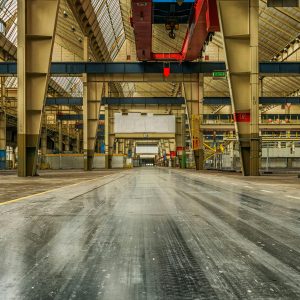Iraq unveils $17 billion transport project linking Europe and Mideast
Baghdad, Iraq (AFP):
Iraq on Saturday presented an ambitious plan to turn itself into a regional transportation hub by developing its road and rail infrastructure, linking Europe with the Middle East.
Once completed, the $17 billion project known as the “Route of Development” would span the length of the country, stretching 1,200 kilometres (745 miles) from the northern border with Turkey to the Gulf in the south.
Prime Minister Mohamed Shia al-Sudani announced the project during a conference with transport ministry representatives from Iran, Jordan, Kuwait, Oman, Qatar, Saudi Arabia, Syria, Turkey and the United Arab Emirates.
“We see this project as a pillar of a sustainable non-oil economy, a link that serves Iraq’s neighbours and the region, and a contribution to economic integration efforts,” Sudani said.
While further discussions are required, any country that wishes “will be able to carry out part of the project”, the Iraqi parliament’s transport committee said, adding the project could be completed in “three to five years”.
“The Route of Development will boost interdependence between the countries of the region,” Turkey’s ambassador to Baghdad Ali Riza Guney said, without elaborating on what role his country would play in the project.
War-ravaged and beset by rampant corruption, oil-rich Iraq suffers from dilapidated infrastructure.
Its roads, riddled with potholes and poorly maintained, are in terrible condition.
Those connecting Baghdad to the north cross areas where sporadic attacks are still carried out by remnants of the Islamic State group.
Sudani has prioritised the reconstruction of the country’s road network, along with upgrading its failing electricity infrastructure.
Lack of ‘fluidity’
Developing the road and rail corridor would allow Iraq to capitalise on its geographical position, with the aim of making the country a transportation hub for goods and people moving between the Gulf, Turkey and Europe.
Work has already started to increase capacity at the commercial port of Al-Faw, on the shores of the Gulf, where cargo is to be unloaded before it embarks on the new road and rail links.
The project also includes the construction of around 15 train stations along the route, including in the major cities of Basra, Baghdad and Mosul, and up to the Turkish border.
The Gulf, largely bordered by Iran and Saudi Arabia, is a major shipping zone, especially for the transportation of hydrocarbons extracted by countries of the region.
Zyad al-Hashemi, an Iraqi consultant on international transport, cast doubt on the plan to develop the country into a transportation hub, saying it lacks “fluidity”.
“Customers prefer to transport their goods directly from Asia to Europe, without going through a loading and unloading process,” that would see containers moved between ships and road or rail, he said.
Transport is a key sector in the global economy and Iraq’s announcement is the latest in other planned international mega-projects, including China’s “Belt and Road Initiative” announced in 2013 by its President Xi Jinping.
The planned works in that project would see 130 countries across Asia, Europe and Africa connected through land and sea infrastructure providing greater access to China.










